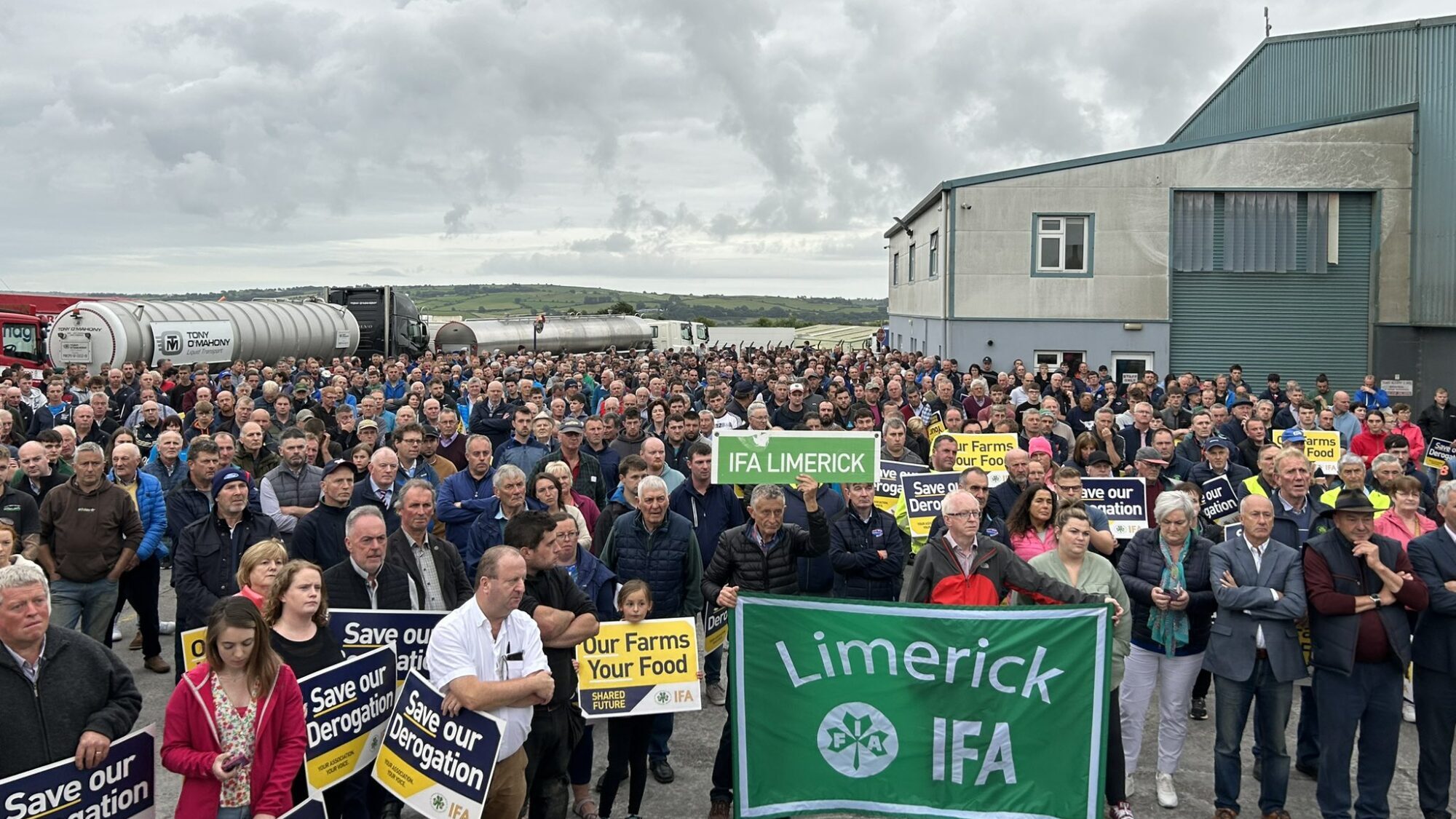
Approximately 2,000 Irish farmers and supporters gathered in the County Cork town of Bandon last week to protest the imposition of stringent new nitrogen emission standards. This is the latest sign that agricultural discontent is spreading across Europe following similar events in the Netherlands.
Farmers are objecting to a recommendation by the Irish Environmental Protection Agency to reduce from 250 kg to 220 kg the amount of nitrogen allowed per hectare of land used for dairy farming. The proposal is currently being reviewed by the European Commission.
The move is seen as the thin end of the wedge by farmers as the Republic looks to cull 65,000 cows per year to meet climate change obligations. The proposed reduction is expected to have a massive financial toll on already razor-thin profit margins with some experts predicting a 29% collapse in profitability for some.
Huge turnout at tonights IFA Save our Derogation protest in Bandon. A show of strength from farmers & support from across all agricultural sectors, Agri business & the community. @IFAmedia @BandonCoop @CarberyGroup pic.twitter.com/zUu9OmYSzF
— Tim Lombard (@voteTimLombard) July 13, 2023
Environmentalists argue that the cuts are necessary to protect groundwater quality from excessive nitrate content. The standoff was eerily similar to recent protests that took the Netherlands by storm and led to the emergence of the populist BBB Farmer’s Movement as the country’s largest political force.
Anger at the protest was directed at the increasingly unpopular Irish Green party and featured disgruntled members of the EPP-aligned ruling Fine Gael party. A spokesman for the farmers, Conor O’Leary, described a “deep sense of frustration” among farmers who feel that environmental regulations are already pushing them to the edge.
A section of the large crowd, which turned out in #Bandon tonight for the #farmers’ protest against #derogation plans @IFAmedia pic.twitter.com/uZ3wQGlK3Y
— The Southern Star (@SouthernStarIRL) July 13, 2023
The Irish Department of Agriculture is understood to be attempting to defuse the dispute by seeking alternative ways to reduce nitrate content, in consultation with the European Commission, to mitigate the blow on farmers.
Irish farmers successfully threw a spanner in the works of the EU-Mercosur trade deal in 2019 due to fears that the European market could be flooded with cheap South American beef produce, and have recently broken ranks with the government over the Nature Restoration Law and austere climate targets.
The protest in Ireland occurs at a time of growing agricultural discontent around attempts to curtail European food production and Brussels’ green agenda conflicting with the interests of farmers and consumers at a time of rising inflation.
In Ireland, agrarian discontent is primarily channelled into support for rural independents and the left-wing populist Sinn Féin party with farmers representing a small but politically powerful bloc within Irish politics.
Growing dissatisfaction among farmers has prompted a rhetorical shift within the EPP and many centre-right European parties, leading many pundits to believe that the wave of agricultural anger could benefit right-wing populists in next year’s European elections.
